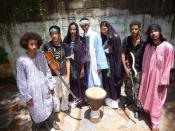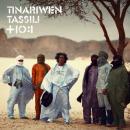Eri sinan matogdah tissnant tadjan man,
neri ikyadan chatmasse aldhachnen azegzan
Eri ikyadan chatmasse aldhachnen azegnan
djer Kalan assnin-nen, izaghnat dagh listeghmar
Eri sinan matogdah tissnant tadjan man,
neri ikyadan chatmasse aldhachnen azegzan
Akhal nen y'Alhoriya iguedal anmixan
izraghan djer ayitma aguedalnen anifham.
Eri sinan matogdah tissnant tadjan man,
neri ikyadan chatmasse aldhachnen azegzan
Eri sinan matogdah tissnant tadjan man
neri ikyadan chatmasse aldhachnen azegzan
neri ikyadan chatmasse aldhachnen azegzan
Eri ikyadan chatmasse aldhachnen azegnan
djer Kalan assnin-nen, izaghnat dagh listeghmar
Eri sinan matogdah tissnant tadjan man,
neri ikyadan chatmasse aldhachnen azegzan
Akhal nen y'Alhoriya iguedal anmixan
izraghan djer ayitma aguedalnen anifham.
Eri sinan matogdah tissnant tadjan man,
neri ikyadan chatmasse aldhachnen azegzan
Eri sinan matogdah tissnant tadjan man
neri ikyadan chatmasse aldhachnen azegzan
envoyé par giorgio - 26/12/2013 - 16:15
Langue: anglais
English version
THE SUFFERING OF MY SISTERS
If one knew how much suffering
Bears the soul of anyone watching
His sisters who are patiently tired
Of waiting for a small expectation
If one knew how much suffering
Bears the soul of anyone watching
His sisters who are patiently tired
Of waiting for a small expectation
Anyone watching his sisters
Who are suffering and patiently tired
Of waiting for a small expectation between countries
All this caused by the pain of colonisation
If one knew how much suffering
Bears the soul of anyone watching
His sisters who are patiently tired
Of waiting for a small expectation
Waiting for freedom,
Prevented by hatred cultivated among brothers,
Which is also preventing unity
If one knew how much suffering
Bears the soul of anyone watching
His sisters who are patiently tired
of waiting for a small expectation
If one knew how much suffering
Bears the soul of anyone watching
His sisters who are patiently tired
Of waiting for a small expectation
If one knew how much suffering
Bears the soul of anyone watching
His sisters who are patiently tired
Of waiting for a small expectation
Anyone watching his sisters
Who are suffering and patiently tired
Of waiting for a small expectation between countries
All this caused by the pain of colonisation
If one knew how much suffering
Bears the soul of anyone watching
His sisters who are patiently tired
Of waiting for a small expectation
Waiting for freedom,
Prevented by hatred cultivated among brothers,
Which is also preventing unity
If one knew how much suffering
Bears the soul of anyone watching
His sisters who are patiently tired
of waiting for a small expectation
envoyé par giorgio - 26/12/2013 - 16:20
MALI: NASCE UNA NUOVA COALIZIONE (COMPOSTA NON SOLAMENTE DA TUAREG) PER L’AUTONOMIA DELL’AZAWAD
Alla guida della nuova coalizione CSP-DPA, Bilal Ag Acherif (segretario generale del MNLA e in precedenza presidente dell’autoproclamato Stato dell’AZAWAD). Presi tra due fuochi- le truppe di Bamako e le milizie islamiste di Jamaʿat Nuṣrat al-Islām wa-l muslimīn - i ribelli tuareg condannano apertamente “ogni forma di terrorismo”.
Gianni Sartori
In un comunicato del 2 maggio (ma la notizia circolava già dal 26 aprile) la coalizione “Quadro permanente per la pace, la sicurezza e lo sviluppo” (CSP-PSD, in buona parte costituita da separatisti tuareg)) annunciava di aver assunto la denominazione di “Quadro strategico permanente per la difesa del popolo dell’Azawad” (Csp-Dpa). Alla guida Bilal Ag Acherif, leader del MNLA (Movimento per la liberazione dell’Azawad) e oppositore storico del governo di Bamako (tanto da essere stato sottoposto a ingenti sanzioni finanziarie).
Qualche nota biografica: ferito nel giugno 2012 nel conflitto tra MNLA e gli islamisti del MUJAO (Movimento per l'Unicità e il Jihad nell'Africa Occidentale), sarebbe poi stato curato in Burkina Faso.
Nel novembre 2012, veniva ricevuto a Parigi da vari diplomatici francesi mentre nel febbraio 2014 da Muhammad VI, re del Marocco. In varie occasione ha chiesto aiuto alla comunità internazionale per contrastare le milizie islamiste di AQMI (al-Qāʿida nel Maghreb islamico) e MUJAO.
Nel comunicato la nuova coalizione informa l’opinione pubblica internazionale di combattere “non solamente per la protezione delle popolazioni, ma anche per ottenere uno statuto proprio politico e giuridico per le regioni del nord”. Ossia quelle denominate Azawad.
Scopo del CSP-DPA sarà anche tentare di conciliare le diverse tendenze interne alla coalizione: gli indipendentisti provenienti dal Coordinamento del movimento dell’Azawad (CMA) e i gruppi favorevoli al mantenimento dell’unità del Mali della “Piattaforma dei movimenti di autodifesa”. Tale “Piattaforma” era sorta nel 2014 dall’alleanza tra vari gruppi armati maliani in genere filo-governativi.
Ne facevano parte il Gruppo di autodifesa tuareg Imghad e alleati (GATIA), il Movimento popolare per la salvezza dell’Azawad (MPSA), il Coordinamento dei movimenti del Fronte patriottico di resistenza (CM-FPR che a sua volta raccoglievatre movimenti: Ganda Koy, Ganda Izo e le Forze di liberazione del nord del Mali)), il Movimento per la difesa della patria (MDP), il Fronte popolare dell’Azawad (FPA) ecc.
I diversi raggruppamento si sarebbero disciolti per “fondersi nella nuova struttura”. Con lo scopo principalmente di “difendersi dal terrorismo di Stato istituzionalizzato”. Denunciando sia le continue esazioni, sia - soprattutto - i numerosi casi di esecuzioni extragiudiziali operati dall’esercito maliamo e dai mercenari della Wagner contro i civili.
Da qui la richiesta di uno “statuto politico e giuridico per l’Azawad”. Al di là delle diverse opzioni (indipendenza o autonomia), uno statuto del genere non potrà ottenersi che attraverso trattative tra i ribelli e il governo di Bamako. Ma purtroppo ora come ora il governo centrale non sembra per niente interessato al “dialogo” e non fa differenza tra ribelli e terroristi (le milizie islamiste). Anzi sembra voler approfittare della “lotta al terrorismo islamico” per chiudere definitivamente i conti con le insorgenze del Nord.
Già nel 2015 i gruppi indipendentisti avevano sostanzialmente rinunciato al loro programma in cambio di una significativa decentralizzazione. Ma gli accordi di allora erano presto destinati a naufragare. Nel 2023, caduta la loro roccaforte di Kidal, i combattenti tuareg venivano duramente sconfitti dalle truppe della Wagner senza saper reagire in maniera adeguata. Almeno per ora.
Preso tra due fuochi, le truppe di Bamako e le milizie di Jamaʿat Nuṣrat al-Islām wa-l muslimīn (JNIM, il “Fronte di sostegno all’islam e ai musulmani”, jihadisti salafiti legati ai terroristi di Al-Qāʿida), nel comunicato il CSP-DPA “condanna il terrorismo in tutte le sue forme”.
Ma altrettanto decisamente diffida i governi dei paesi limitrofi (scontato il riferimento al Niger e al Burkina Faso anche senza averli citati esplicitamente) dal “prendere iniziative o intervenire nei territori dell’Azawad”.
Recentemente infatti si è costituita una “Alleanza degli Stati del Sahel” (AES, fondamentalmente di natura militare) di cui fanno parte, oltre al Mali, il Niger e il Burkina Faso.
Gianni Sartori
Alla guida della nuova coalizione CSP-DPA, Bilal Ag Acherif (segretario generale del MNLA e in precedenza presidente dell’autoproclamato Stato dell’AZAWAD). Presi tra due fuochi- le truppe di Bamako e le milizie islamiste di Jamaʿat Nuṣrat al-Islām wa-l muslimīn - i ribelli tuareg condannano apertamente “ogni forma di terrorismo”.
Gianni Sartori
In un comunicato del 2 maggio (ma la notizia circolava già dal 26 aprile) la coalizione “Quadro permanente per la pace, la sicurezza e lo sviluppo” (CSP-PSD, in buona parte costituita da separatisti tuareg)) annunciava di aver assunto la denominazione di “Quadro strategico permanente per la difesa del popolo dell’Azawad” (Csp-Dpa). Alla guida Bilal Ag Acherif, leader del MNLA (Movimento per la liberazione dell’Azawad) e oppositore storico del governo di Bamako (tanto da essere stato sottoposto a ingenti sanzioni finanziarie).
Qualche nota biografica: ferito nel giugno 2012 nel conflitto tra MNLA e gli islamisti del MUJAO (Movimento per l'Unicità e il Jihad nell'Africa Occidentale), sarebbe poi stato curato in Burkina Faso.
Nel novembre 2012, veniva ricevuto a Parigi da vari diplomatici francesi mentre nel febbraio 2014 da Muhammad VI, re del Marocco. In varie occasione ha chiesto aiuto alla comunità internazionale per contrastare le milizie islamiste di AQMI (al-Qāʿida nel Maghreb islamico) e MUJAO.
Nel comunicato la nuova coalizione informa l’opinione pubblica internazionale di combattere “non solamente per la protezione delle popolazioni, ma anche per ottenere uno statuto proprio politico e giuridico per le regioni del nord”. Ossia quelle denominate Azawad.
Scopo del CSP-DPA sarà anche tentare di conciliare le diverse tendenze interne alla coalizione: gli indipendentisti provenienti dal Coordinamento del movimento dell’Azawad (CMA) e i gruppi favorevoli al mantenimento dell’unità del Mali della “Piattaforma dei movimenti di autodifesa”. Tale “Piattaforma” era sorta nel 2014 dall’alleanza tra vari gruppi armati maliani in genere filo-governativi.
Ne facevano parte il Gruppo di autodifesa tuareg Imghad e alleati (GATIA), il Movimento popolare per la salvezza dell’Azawad (MPSA), il Coordinamento dei movimenti del Fronte patriottico di resistenza (CM-FPR che a sua volta raccoglievatre movimenti: Ganda Koy, Ganda Izo e le Forze di liberazione del nord del Mali)), il Movimento per la difesa della patria (MDP), il Fronte popolare dell’Azawad (FPA) ecc.
I diversi raggruppamento si sarebbero disciolti per “fondersi nella nuova struttura”. Con lo scopo principalmente di “difendersi dal terrorismo di Stato istituzionalizzato”. Denunciando sia le continue esazioni, sia - soprattutto - i numerosi casi di esecuzioni extragiudiziali operati dall’esercito maliamo e dai mercenari della Wagner contro i civili.
Da qui la richiesta di uno “statuto politico e giuridico per l’Azawad”. Al di là delle diverse opzioni (indipendenza o autonomia), uno statuto del genere non potrà ottenersi che attraverso trattative tra i ribelli e il governo di Bamako. Ma purtroppo ora come ora il governo centrale non sembra per niente interessato al “dialogo” e non fa differenza tra ribelli e terroristi (le milizie islamiste). Anzi sembra voler approfittare della “lotta al terrorismo islamico” per chiudere definitivamente i conti con le insorgenze del Nord.
Già nel 2015 i gruppi indipendentisti avevano sostanzialmente rinunciato al loro programma in cambio di una significativa decentralizzazione. Ma gli accordi di allora erano presto destinati a naufragare. Nel 2023, caduta la loro roccaforte di Kidal, i combattenti tuareg venivano duramente sconfitti dalle truppe della Wagner senza saper reagire in maniera adeguata. Almeno per ora.
Preso tra due fuochi, le truppe di Bamako e le milizie di Jamaʿat Nuṣrat al-Islām wa-l muslimīn (JNIM, il “Fronte di sostegno all’islam e ai musulmani”, jihadisti salafiti legati ai terroristi di Al-Qāʿida), nel comunicato il CSP-DPA “condanna il terrorismo in tutte le sue forme”.
Ma altrettanto decisamente diffida i governi dei paesi limitrofi (scontato il riferimento al Niger e al Burkina Faso anche senza averli citati esplicitamente) dal “prendere iniziative o intervenire nei territori dell’Azawad”.
Recentemente infatti si è costituita una “Alleanza degli Stati del Sahel” (AES, fondamentalmente di natura militare) di cui fanno parte, oltre al Mali, il Niger e il Burkina Faso.
Gianni Sartori
Gianni Sartori - 5/5/2024 - 18:36
×
![]()









Lyrics & Music by Ousmane Ag Mossa
Album: Chatma
"Tissnant in Chatma Nine" is a song from the album Chatma. In Tamashek "Chatma" means "Sisters" and the band has dedicated the album in their own words to: "the courage of the Tuareg women, who have ensured both their children's survival and the morals of their fathers and brothers". As a kid growing up in the deep Sahara, Ousmane ag Mossa decided he wanted to become a lawyer – or rather an "advocate" for his people, the semi-nomadic Tuareg of the southern Sahara, who have been marginalised and demonised for the best part of 50 years. But the Tuareg don't have lawyers, so he became a musician instead. In effect, it amounts to the same thing.
The success of Tamikrest – the band Ousmane founded with his mates in the war-weary town of Kidal, northern Mali, a decade ago – has given him a more potent platform than any lawyer could hope for. The singer, songwriter and guitarist can talk for hours, with furrowed brow, his voice just above a whisper. There isn't any aspect of northern Mali's recent season in hell Ousmane hasn't chewed over.
Its jagged guitar hooklines and rolling desert grooves underpin themes that are almost universal in Tuareg guitar music: homesickness, loss, the beauty of nature, and – above all – the need for the Tuareg to wake up, unite and take control of their own future.
"If we'd been united, what happened in 2012 wouldn't have been possible," he says, referring to the hijacking of a Tuareg revolt against the Malian government by al-Qaida in the Islamic Maghreb (Aqim) and other armed militias, who imposed an alien and hardline creed of Islam on the local population. The Malian government has been trying to conflate the Tuareg struggle for autonomy with global jihad for at least a decade, even though the Tuareg cause predates the birth of al-Qaida by at least 30 years. "Politicians profited from that lack of unity. Some Tuareg took up causes – like imposing sharia law – that have nothing to do with what most of us have been fighting for all our lives."
His dream of independence for the Tuareg is uncompromising. Not for him the cooing mood music of national unity and fraternity that is currently being piped all over Mali, with its newly elected president. His people have suffered too much to go back to the status quo. Especially the women. "They are suffering in a way they've never known before", he says. "But they will always resist and claim their own freedom, until the day they have their own territory".
The difficulties faced by women include trying to subsist in overcrowded, disease-ridden refugee camps, which have sprung up in neighbouring countries as many of the people of northern Mali fled. But there are also the strictures imposed on women by the Aqim mujahideen. They can't dance, can't play music and must be covered from head to toe. Tuareg women have always enjoyed more power and freedom of speech than their counterparts in the Middle East. And yet, by dint of the obscure machinations of a handful of Tuareg leaders, the Tuareg cause has become confused with that of global jihad in the minds of many. Ousmane, like many other Tuareg, believes this was deliberate.
"I totally understand what happened in respect of Al-Qaida and their allies", he says. "It was the role of the Islamists – well, not Islamists, because Islam is something else, but rather the terrorists – to treat people in such a severe way, so that all they wanted was peace. They wanted the population to feel the absence of a government and all the chaos that resulted from that. So all those people – men, women, children, old people – didn't want to hear about revolution any more, or their rights."
Ousmane's weapons, however, are a mic and a guitar. The whole idea of a Tuareg nation with a unique cultural identity was instilled into this vastly dispersed people by means of music. If Tamikrest don't sound a great deal different from their mentors Tinariwen to western ears, it's because their struggle is essentially the same. "This music was founded on a very precise cause, the Tuareg cause," Ousmane says. "In a great sense, we are the children of Ibrahim [Ag Alhabib, founder of Tinariwen]. I'm very influenced by his music, and his touch on the guitar."
Back in their desert home, Tamikrest are possibly even more popular among the youth than Tinariwen. In many ways, Tamikrest carry the burden of "fronting" this young Saharan generation so buffeted and lashed by recent events. Their priorities are clear: unity, education, development and peace – but not at any cost..